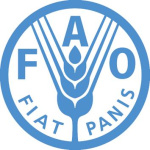- Branche: Agriculture
- Number of terms: 87409
- Number of blossaries: 0
- Company Profile:
Established in October 1945 with the objective of eliminating hunger and improving nutrition and standards of living by increasing agricultural productivity, FAO coordinates the efforts of governments and technical agencies in programs for developing agriculture, forestry, fisheries, and land and ...
An optimum medium suitable for explant survival, growth and development.
Industry:Biotechnology
An organelle in many animal cells that appears to be involved in the formation of the spindle during mitosis. During cell division, the two centrioles move to opposite sides of the nucleus to form the ends of the spindle.
Industry:Biotechnology
An organic compound based on the general formula C<sub>x</sub> (H<sub>2</sub>O)<sub>y</sub>, performing many vital roles in living organisms. The simplest carbohydrates are the sugars (saccharides), including glucose and sucrose. Polysaccharides are carbohydrates of much greater molecular weight and complexity; examples are starch, which serves as energy store in plant seeds and tubers; cellulose and lignin that form the cell walls and woody tissue of plants of plants; glycogen, etc.
Industry:Biotechnology
An organic molecule of low molecular weight and usually non-protein, such as a vitamin, that binds to an enzyme and promotes its catalytic activity.
Industry:Biotechnology
An organic molecule or inorganic ion necessary for the normal catalytic activity of an enzyme.
Industry:Biotechnology
An organism as found in nature; the dominant allele usually found in nature, and from which mutations produce other dominants or recessives alleles.
Industry:Biotechnology
An organism homozygous for a recessive allele at each of two loci.
Industry:Biotechnology
An organism in which a foreign gene (a transgene) is incorporated into its genome. The transgene is present in both somatic and germ cells, is expressed in one or more tissues, and is inherited by offspring in a Mendelian fashion.
Industry:Biotechnology
An organism is said to be constitutive for the production of an enzyme or other protein if that protein is always produced by the cells under all physiological conditions.
Industry:Biotechnology
